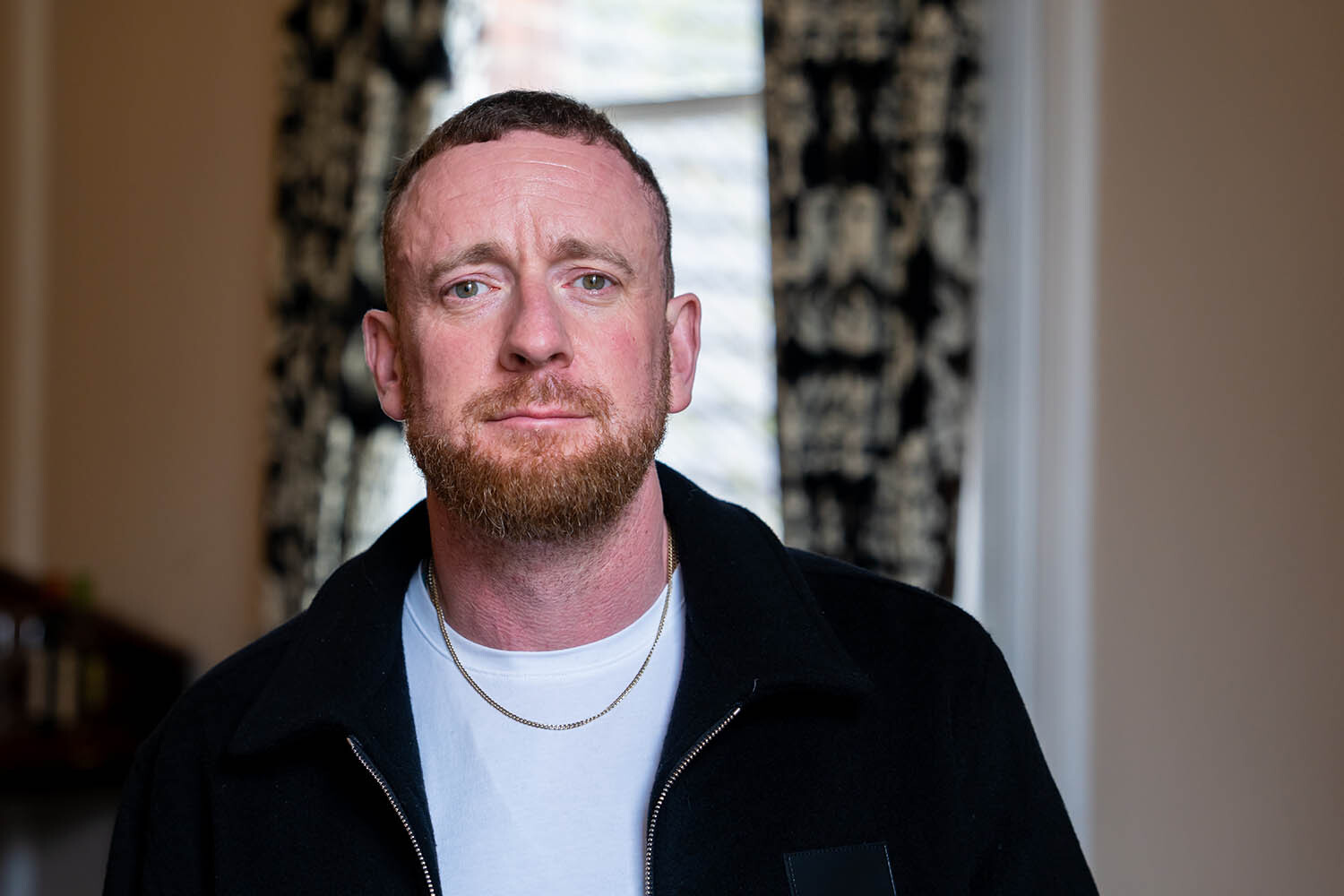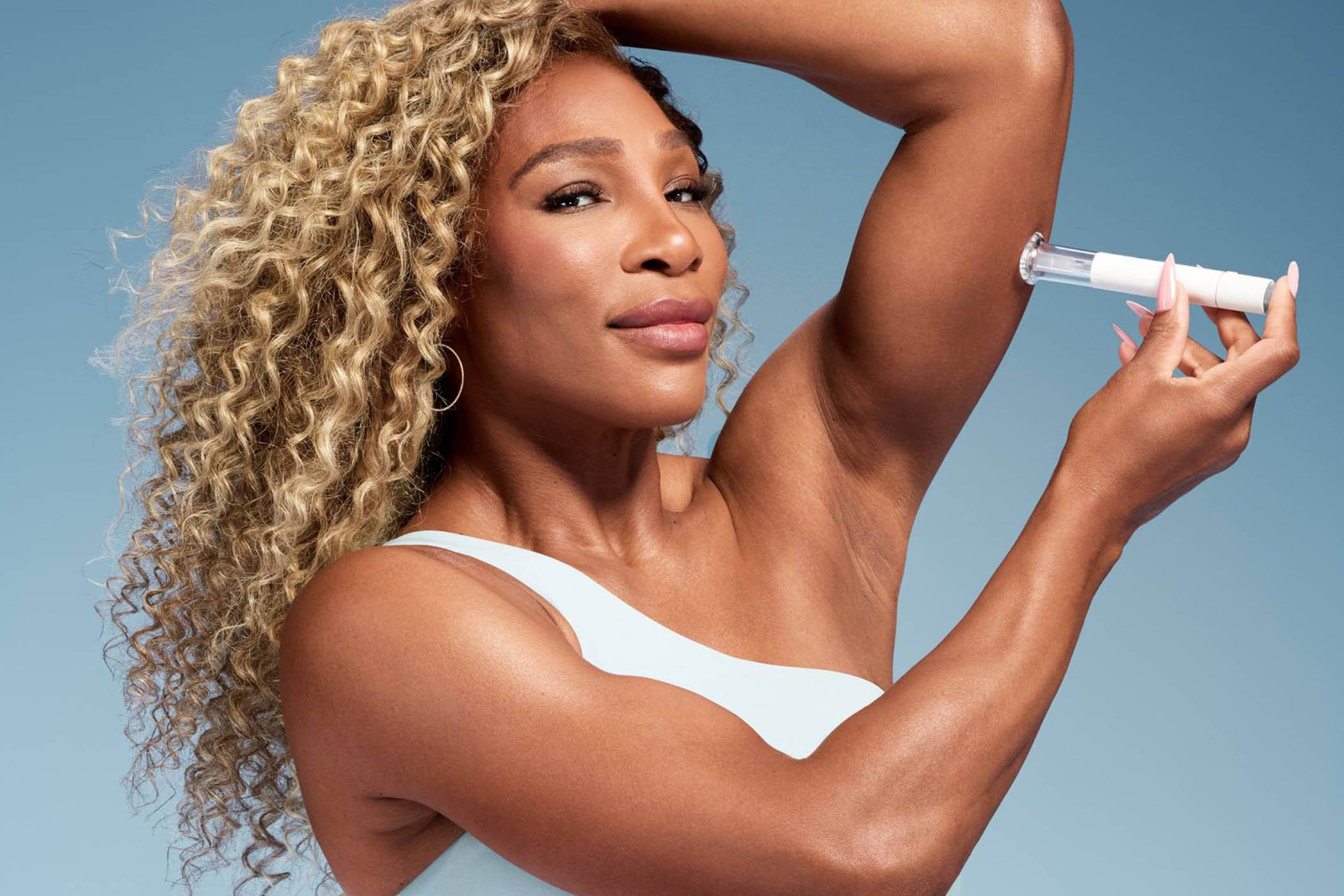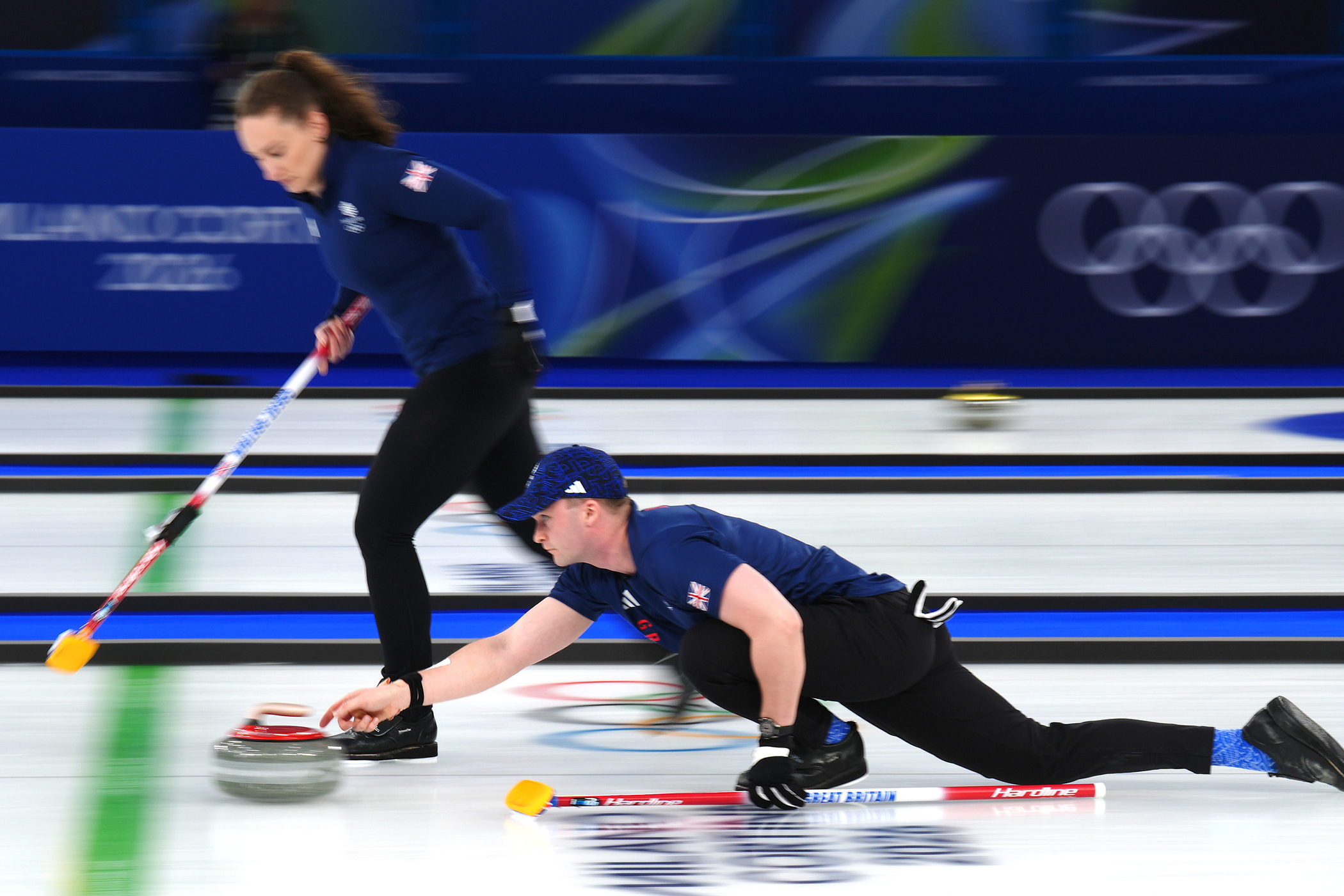On a sofa in the lobby of a West London hotel, Bradley Wiggins sits in T-shirt and shorts, calmly detailing the traumas of his childhood that led to chronic addiction problems and bankruptcy.
“I was doing shitloads of cocaine and I had a really bad problem,” he says. “My kids were going to put me in rehab. I was walking a tightrope.”
Now 45, Wiggins – in London for an Ekoi cycling equipment product launch – is a little stockier than during his career. Since he’s started cycling again, though, the long, powerful legs that took him to Olympic and Tour de France success have resumed their racing shape.
He says at one point he was in danger of being added to the long list of lost cyclists – including Italian icon Marco Pantani, and Belgian star Frank Vandenbroucke – who struggled to overcome their addictions and died far too young.
“There were times my son thought I was going to be found dead in the morning. I was a functioning addict. People wouldn’t realise. Alcohol was never my thing, because my Dad was an alcoholic. So I had to find something else.”
Wiggins, father to Bella and to Junior World Champion, Ben — now understood to be in negotiations to join Jim Ratcliffe’s Ineos Grenadiers, once his father’s Sky-sponsored team — was estranged from his own father Gary, also an elite cyclist and addict. Gary Wiggins died of head injuries after being ejected from a party in Australia in 2008. Their broken relationship shadowed the 2012 Tour de France winner throughout his career and into his retirement.
Now he has been in recovery for 12 months and cycling, the cause of so much trauma in his life, has become one of his therapies.
“If my dad hadn’t been a cyclist, I wouldn’t have been a cyclist. I haven’t had a bike for years and now I’ve got a bike again. I forgot how much I loved being out on it.
Related articles:
“I have realised how much cycling gave me as a child. I’d thought in recent years it took everything away from me, but actually I only saw the negative sides of everything.”
Wiggins says he caused himself more pain trying to push his love of cycling away. “Every time someone sees me it’s ‘Oh, you’re that cyclist,’ and I can never get away from it.
Newsletters
Choose the newsletters you want to receive
View more
For information about how The Observer protects your data, read our Privacy Policy
“For years I’ve said, ‘I’m not a cyclist any more,’ and tried to redefine myself as something else.
“Every week there was something new I was going to do, whether it was rowing, trying to be a doctor – all these mad schemes I came up with, under the influence. Ultimately, cycling’s where I get the most pleasure. It’s my sanctuary.”
At the height of his fame, during London 2012, he was seen as an entertainer, a jester, everyone’s best mate, but says he wore the mask of ‘Wiggo’ – the V-signs on the throne in Hampton Court, the pronounced sideburns, the Mod persona – to hide what was going on.
“My worth as a person was not reflective of the confidence I had on the bike. I could go and execute an Olympic final in Hampton Court in front of millions. The minute I stepped off the bike and had to be me, I had to do something funny.”
“It was a way of disguising, hiding in public. When I went up to Sports Personality of the Year, I had to get drunk and be funny and play the fool.”
He was also filled with self-destructive rage. “I was angry. There was a lot of pent-up anger. I was in fight or flight all the time. If anyone criticised me, it was fight. Or I’d take off. I was really unreliable.”
The nadir came in his stint as a TV pundit, commentating on the Tour from the back seat of an in-race motorbike. “I’d sit there smoking Marlboro Lights, and it was a ‘I don’t give a fuck’ type thing.
“That was self-destructive. I was like that a lot. I’d see pictures of myself smoking and think: ‘That’s not you, Brad.’ But the only person I was harming was myself.”
He says he only shed that mentality recently. “I was a victim of all my own choices, for many years.
“I already had a lot of self-hatred, but I was amplifying it. It was a form of self-harm and self-sabotage. It was not the person I wanted to be. I realised I was hurting a lot of people around me.
“My worth as a person was only ever attached to winning. No one ever said, ‘Forget cycling – you’re enough as a person.’ I don’t think I ever felt the full satisfaction of what I’d done. I’m a people-pleaser.”
Wiggins says winning first became all-consuming in his teens. “If I didn’t do well at a bike race, I got left at the race – by my mum and my stepdad. I learned, pretty quickly, I’ve got to win races at all costs.”
“If I won, we got driven home and we could stop at Garfunkel’s in Paddington. That was my treat. If I won races, I got rewarded for it. That was ingrained in me.”
“No more so than at Team Sky. That first year at Sky, which was a failure, I nearly lost my job. They said: ‘We are going to have to get another leader in if you can’t lead this team.’”
Pre-Sky, in the darkest days of serial doping scandals, Wiggins became a media go-to for his condemnation of his peers.
In 2007, one of his team mates was arrested in the Pyrenees and his team quit the race. Enraged, Wiggins threw his kit in the bin in disgust.
When he got back to Manchester, he was fed up with his sport. “My childhood dream, which became a reality, has been pissed all over by certain riders,” he said.
He was volubly anti-doping, which made the infamous Jiffy bag scandal that led to a parliamentary investigation after Russian hackers exposed Team Sky’s usage of therapeutic use exemptions (TUEs) in 2016, all the more shocking.
He says the whole saga, centred around the aftermath of his win in the Criterium du Dauphine, in the French Alps in 2011, was a nightmare. “The whole story, that it was delivered to me. It was made to sound like I was delivered a package: ‘Can you sign for this?’ And it was never like that. It came to the race and was handed to someone who opened it.
“The amount of times I got asked ‘What was in the package?’ I had no idea: fuck knows,” he insists.
Asked directly if he got a TUE injection on the team bus, Wiggins categorically denies it, firmly saying “No,” three times.
‘I had a really bad problem. My kids were going to put me in rehab. I was walking a tightrope.’
‘I had a really bad problem. My kids were going to put me in rehab. I was walking a tightrope.’
Bradley Wiggins
His recovery from addiction has been supported by former Tour winner Lance Armstrong, who eventually confessed to doping more than a decade ago.
He says Armstrong was worried about him “for a long time”.
The Texan has become something of a patron saint for the peloton’s black sheep, similarly rescuing former rival, 1997 Tour winner, Jan Ullrich, from his addictions.
He added: “They’d try and get hold of me, but couldn’t find where I was. My son speaks to Lance a lot.
“He’d ask my son, ‘How’s your Dad?’ Ben would say, ‘I’ve not heard from him for a couple of weeks, I know he’s living in a hotel.’
“My proclivity to addiction was easing the pain that I lived with.
“They wouldn’t hear from me for days on end. I can talk about these things candidly now. There was an element of me living a lie, in not talking about it.
“There’s no middle ground for me. I can’t just have a glass of wine. If I have a glass of wine, then I’m buying drugs.
“It’s funny,” Wiggins says, “Lance, Jan and me, all grew up without our fathers in our lives. There’s a statistic that more Tour winners grew up in single-parent homes than any other sport.
“I’ve always viewed cycling from the negative side, from what came with the career and what happened at the end of the career,” he says. “Now, I’m seeing it for what it is.”
Visit samaritans.org for support.
Photograph by Nordin Catic/Getty Images For The Cambridge Union



